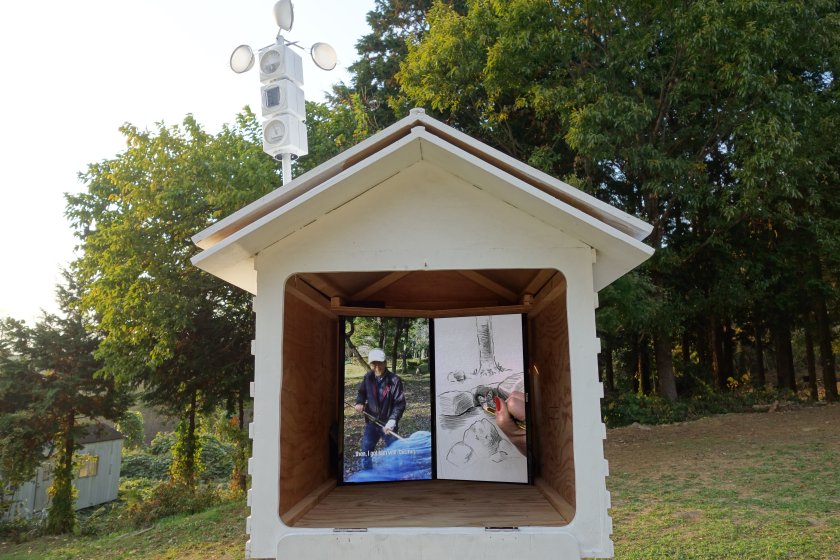Sensometer Climate Station
Tsukuba Art Centre in Japan invited LfM to realise an art installation in Fureai no Sato Park in the context of a residency programme. The installation consisted out of a small weather house mounted on top of a Meiji-era baggage cart, which housed a monitor showing a vertical, split-screen video. Prior to the project’s presentation, LfM interviewed and filmed visitors and asked them to recount a moment in their life when they felt a ‘wind chill’ due to an emotional experience.
The Windy City
The spatial variation of buildings, roads and parks result in microclimates in cities. Wind in cities affects the thermal comfort, air quality, health and energy need of its inhabitants. With advanced flow models meteorologists determine the behavior of wind gusts and microclimates in the city.

RainSense
The aim of the project Rain Sense is to collect rainfall and flood measurements in Amsterdam to make the city more resilient to flooding, using the ‘Social Weather’ app. The mapping goes all the way down to street level – a feature unique to this project. We are also using other smart innovations, including measurement stations on lampposts, umbrellas that serve as mobile rain meters, rainfall monitoring using microwave links from cellular communication networks and crowdsourced automatic rain gauge measurements. The data we collect will make it possible to take timely measures against flooding.
UrbanAirQ
Air quality in cities and its impact on public health is currently a growing concern. New emerging technologies enable air quality measurements to be crowdsourced and are considered to be a promising complement to the sparse official measurements.
A second advantage of crowdsourcing is that awareness, next to technical innovation, is considered to be a successful strategy to stimulate behavioural change and reduce the air pollution emissions.
Green Junkie
Many cities suffer from high particulate concentrations which have a negative impact on the air quality and the health of citizens. Wageningen UR scientists analyse the effect on the particulate concentration of the special developed plant Green Junkie. The dense and longer hairs on the leaves of the Green Junkies are expected to capture larger quantities of particulate matter compared to other plants, thereby contributing to a better air quality for greener and liveable cities.